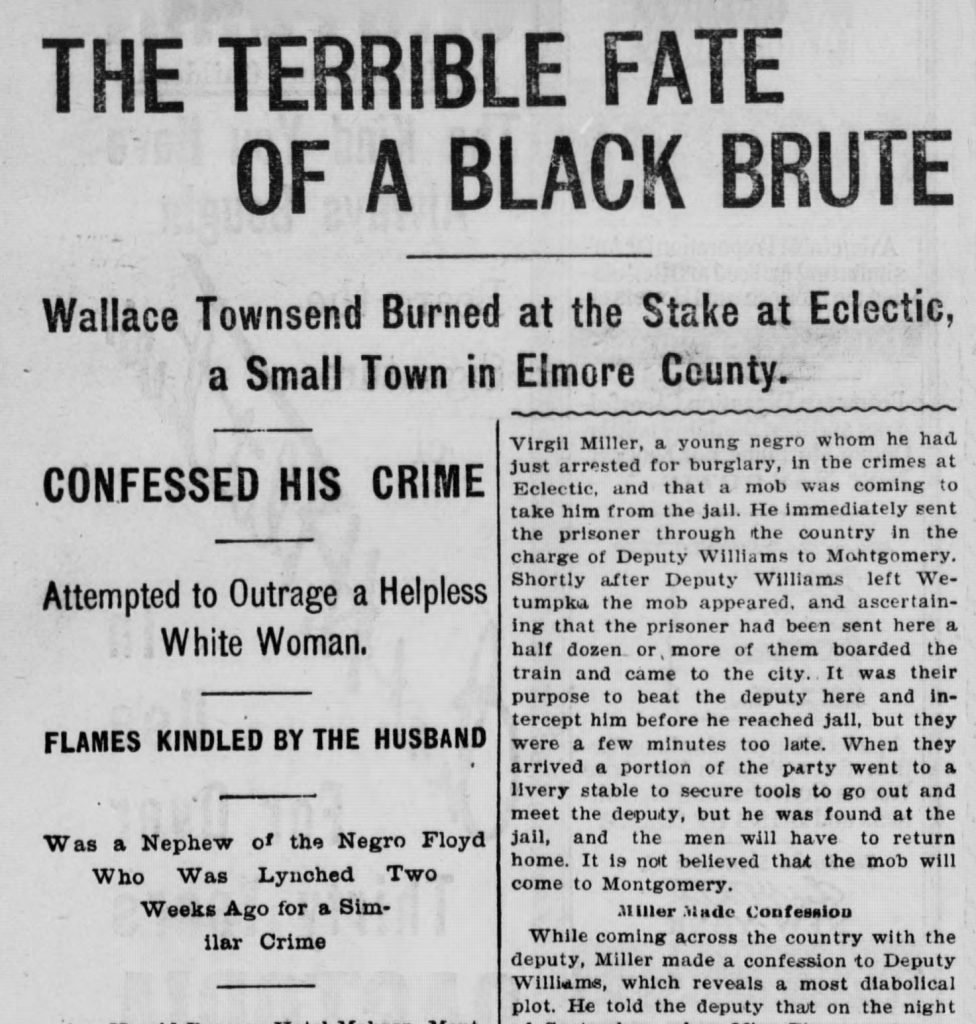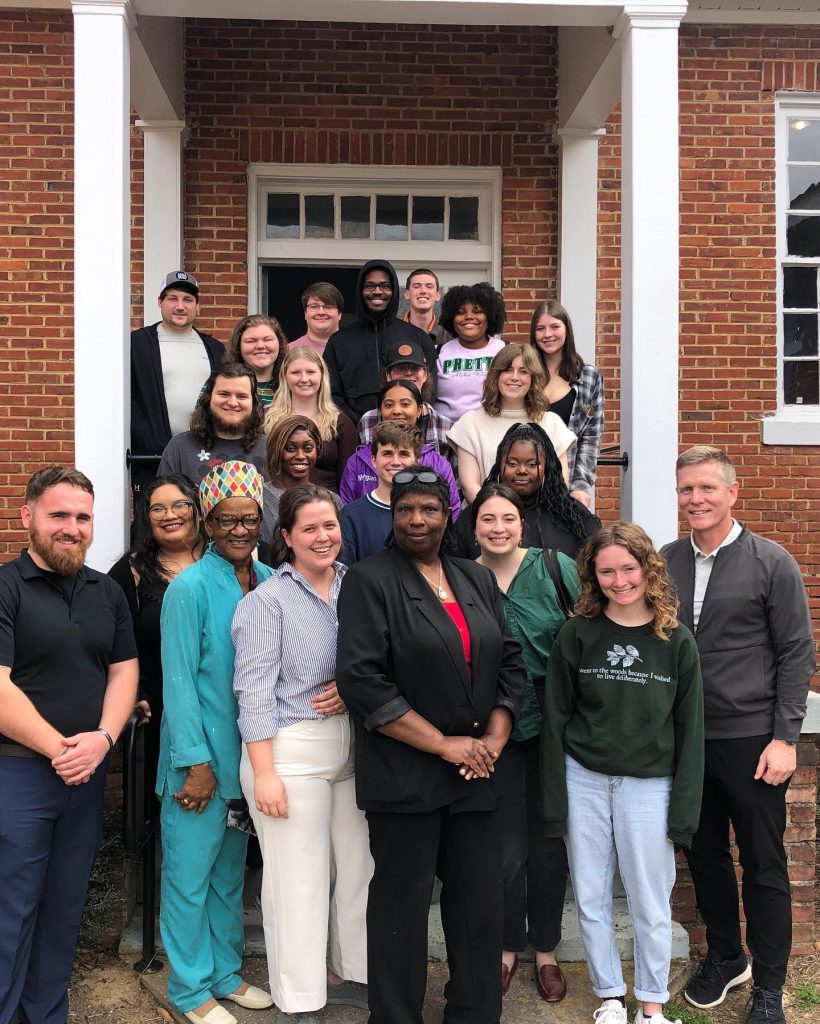
The Summersell Center for the Study of the South’s (SCSS) spring semester has produced new research for its lynching research initiative, the Alabama Memory Project. Eighteen undergraduate researchers are working to document the lives of the thirty known victims of lynching in Elmore County, Alabama, attempting to reconstruct the entirety of the victims’ lives, not just their end.
The course is co-taught by SCSS Director Dr. John Giggie and MA student Jana Venable, the current Vivian Malone Fellow and an Elmore County native. Four alumni of the course – Isabella Garrison, Abby Rathel, Lewis Zannis, and Brett Bonikowski – serve as advanced research mentors, volunteering their time to contribute to the success and continuation of the Alabama Memory Project.
Class members first visited the Wetumpka museum in February, where they were given a tour and listened to the personal recollections of the museum’s curators, Billie Rawls and Pat Williams.

The SCSS partnered with the Elmore County Black History Museum in January 2021 to imagine a memorial for the county’s thirty known lynching victims. Their combined efforts have included collecting oral histories from the county’s older Black residents and developing ways to interpret and exhibit these histories. The resulting exhibits should be open to the public by the semester’s end.
After visiting the Elmore County museum, students made the twenty-five-minute trip to the Equal Justice Initiative’s Legacy Museum and National Memorial for Peace and Justice, in Montgomery. Visiting EJI’s museum and memorial allowed students to connect their research to national narratives on lynching and racial violence.
On April 15, 2023, the SCSS hosted a roundtable discussion on History and Community Work at the Undergraduate Historical Society’s Capstone Research Symposium. The roundtable featured former and current students from classes sponsored by the SCSS who engaged in conversations on the practice of history and the practitioner’s obligations to the communities around them.